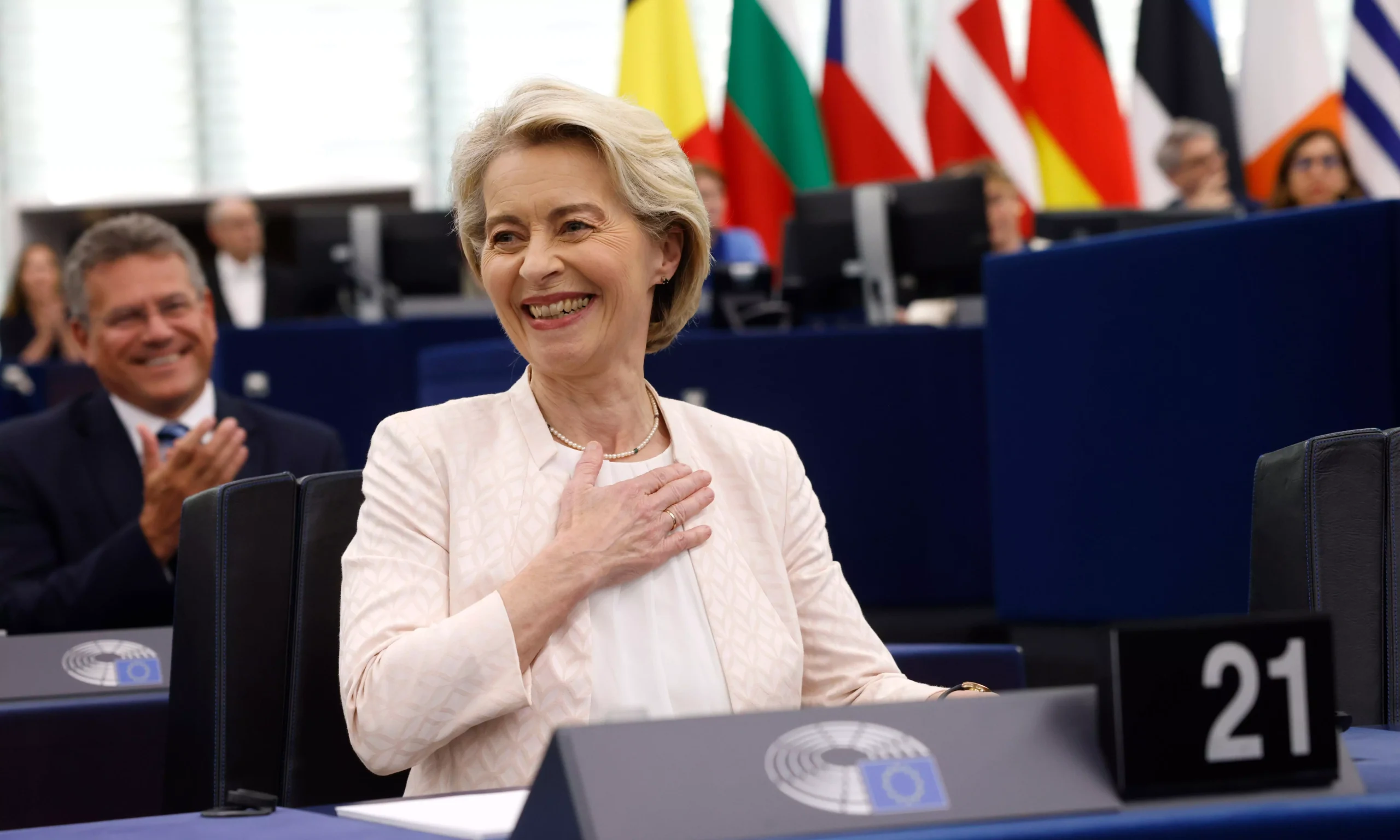Ursula von der Leyen Secures Second Term as European Commission President
European Commission President Ursula von der Leyen has secured a second five-year term, pledging to address the EU’s challenges, including enhancing defense capabilities and bolstering European industry.
The former German defense minister, who made history as the first female leader of the European Commission in 2019, positioned herself as the most qualified to lead the commission through turbulent times.
Von der Leyen received 401 votes from MEPs in the 720-seat chamber in Strasbourg, surpassing the required 361-vote majority. The secret ballot saw 284 lawmakers voting against her.
Elated, von der Leyen celebrated the result, calling it “a very emotional and special moment” and highlighting it as “a strong message of confidence.”
Her first term was marked by significant challenges, including the COVID-19 pandemic and the war in Ukraine. “We have navigated the most troubled waters our union has ever faced,” she told reporters.
Looking ahead, von der Leyen anticipates another challenging term, with the possibility of Donald Trump returning to the White House and ongoing conflicts near Europe. She emphasized the need for a “strong Europe” during these uncertain times.
Additional issues on her agenda include potential conflicts in the Middle East and trade tensions with China.

Congratulations and Challenges Ahead
European leaders quickly congratulated von der Leyen. British Prime Minister Keir Starmer expressed hopes for improved EU-UK relations, while German Chancellor Olaf Scholz and Polish Prime Minister Donald Tusk praised her leadership.
European Council President Charles Michel, who had a tense relationship with von der Leyen, acknowledged the significance of her re-election, emphasizing the need for unity and cooperation to tackle shared challenges.
Ukrainian President Volodymyr Zelensky also extended his best wishes, hoping for strengthened EU unity and defense.
Policy Priorities
Von der Leyen committed to enhancing Europe’s competitiveness by investing in key industries, including defense. She also reaffirmed the EU’s climate goals, aiming to reduce greenhouse gas emissions by 90 percent by 2040.
Promising to address the housing crisis, she plans to create a new commissioner role, strengthen the EU’s border agency Frontex, triple the number of border guards, and combat disinformation.
Her plans to fortify EU borders align with her EPP allies’ priorities and the far-right ECR group, despite their opposition in the vote. Italian Prime Minister Giorgia Meloni assured that this opposition wouldn’t hinder cooperation between Rome and Brussels.
Von der Leyen now faces the task of selecting her next cabinet of commissioners, who will undergo confirmation hearings in the autumn.